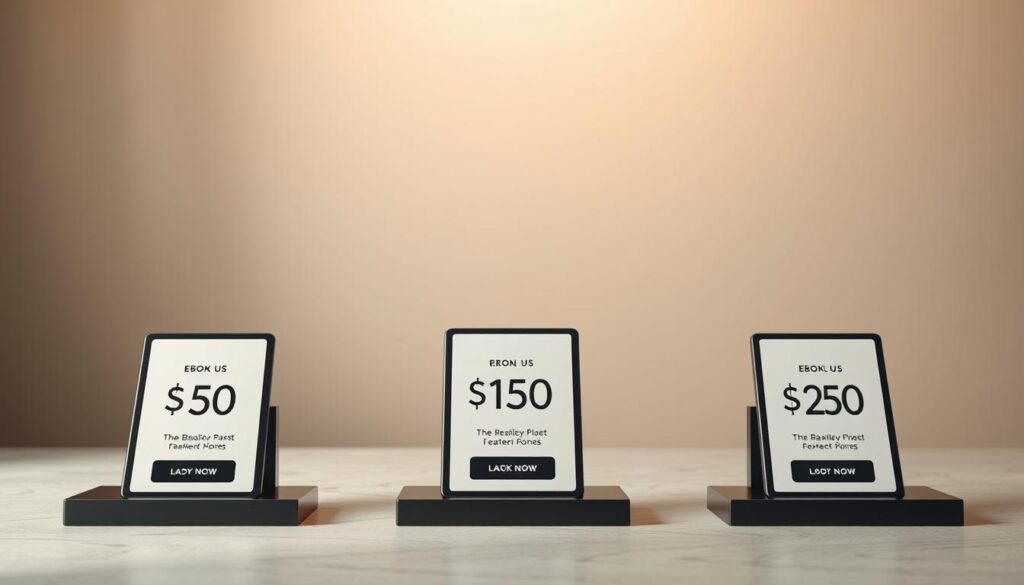The digital products market is booming, with ebooks leading the charge. By 2026, nearly 16% of internet users will engage with these digital assets. You don’t need to show your face or reveal your identity to succeed.
Authors like Amanda Hocking proved self-publishing works. The global ebook industry grows at 5.9% yearly, now worth $1.25 billion. This guide reveals how to tap into this demand while staying anonymous.
Tools like Canva and Sellfy simplify the process. Focus on niche selection, ghostwriting, and branding. Protect your privacy while building authority in your chosen field.
Key Takeaways
- The ebook market offers strong growth potential for digital entrepreneurs
- Anonymous publishing protects privacy while creating income streams
- User-friendly tools require minimal technical expertise
- Proper niche selection increases chances of success
- Ghostwriters can help produce content without personal exposure
Why Create and Sell E-books Anonymously?
Privacy-focused entrepreneurs are tapping into the ebook market’s potential. With 72% of top Amazon KDP authors using pen names, anonymity isn’t just possible—it’s profitable. Digital products like ebooks offer unique advantages for those who value discretion.
The Power of Passive Income
Ebooks generate passive income effortlessly once published. Platforms like Shopify automate sales, while Teachable handles delivery. Romance author Elena Armas earned six figures under a pseudonym—proof that faceless branding works.
Compared to physical books, ebooks boast 70%+ profit margins. With minimal upkeep, earnings compound over time. *No inventory, no shipping—just scalable revenue.*
Building Authority Without Personal Branding
You don’t need a social media presence to establish credibility. A well-researched niche ebook positions you as an expert—without live streams or selfies. Readers care about value, not your identity.
Low-Barrier Entry to Digital Entrepreneurship
Starting costs average $500, far cheaper than traditional publishing. Use PLR content or hire ghostwriters for $50–$200 per project. Introverts thrive here—no video calls or networking required.
Tools like Sellfy simplify store setup, while Canva designs professional covers. The process is streamlined for beginners, making it ideal for side hustles.
Choosing Your Anonymous Niche
Profitable ebook topics often hide in unexpected market gaps. The right niche balances demand with anonymity, letting you dominate without personal exposure. Start by analyzing trends and repurposing existing content.
Researching Profitable Ebook Topics
Tools like Google Trends reveal rising interests. AI prompts grew 427% last year, while keto recipes remain evergreen. Chaos Studio 7’s $29.99 sci-fi templates prove niche specificity pays.
Repurpose expired webinars into ebook bundles. This cuts research time and taps into proven audience needs. *Underserved markets offer the best ROI.*
Leveraging PLR Content for Anonymity
Private Label Rights (PLR) content lets you skip writing. Excel Dictionary’s $14.99 spreadsheet guides show how repackaged PLR sells. Customize covers and branding to maintain secrecy.
Benefits of PLR:
- No authorship attribution required
- 50–80% faster production
- Ideal for multi-format bundles
Tools for Keyword Research
Compare AnswerThePublic and Google Trends to pinpoint questions your ebook should answer. Amazon Best Sellers Rank validates demand.
| Tool | Best For | Anonymous Use |
|---|---|---|
| Google Trends | Market comparisons | Yes (no login) |
| AnswerThePublic | “How to” questions | Yes |
| Amazon BSR | Demand validation | Yes |
Crafting Your Ebook Without Revealing Your Identity
Building a faceless ebook business starts with smart production choices. Leverage ghostwriters, templates, and automation to maintain privacy while delivering professional results.
Ghostwriting for Complete Anonymity
Platforms like Fiverr and Upwork connect you with skilled writers. Rates range from $0.03–$0.25 per word for a 10k-word book. Specify non-disclosure agreements (NDAs) to protect your identity.
Top ghostwriters specialize in niches like finance or romance. *No need for interviews—share outlines via encrypted apps.*
Designing Professional Covers
Canva’s 1.2M monthly downloads prove its popularity. Use mystery-themed templates or hire Upwork designers for $15–$50 per cover. Generic visuals like landscapes or abstract art keep branding neutral.
Formatting Made Simple
Tools streamline the process:
- Vellum ($249): Auto-generates Kindle/EPUB layouts
- Beacon ($47): Customizable novel templates
- Grammarly Business: Ensures error-free text
Sellfy’s PDF stamping adds watermarks for piracy protection. Your book looks polished—no design skills needed.
Top Platforms to Sell Ebooks Anonymously
Selling digital content anonymously has never been easier with today’s platforms. Whether you prioritize royalties, low fees, or white-label solutions, these options cater to discreet authors.
Amazon KDP (Kindle Direct Publishing)
Amazon KDP dominates with 70% royalties for ebooks priced $2.99–$9.99. Its global reach ensures visibility, while A+ Content tools enhance product descriptions. *No personal branding required—just a pen name.*
Etsy for Digital Products
With 4.8M digital sellers, Etsy averages $162/month per store. Its 6.5% fee undercuts competitors like Gumroad (10%). List instantly—no inventory or shipping hassles.
Shopify Stores with Digital Delivery
Configure Shopify’s online store with the Digital Downloads app for automated delivery. Use POS for event sales. *Ideal for bundling ebooks with other products.*
Sellfy’s White-Label Solutions
Sellfy offers embedded checkouts for WordPress/Wix sites. Zero transaction fees on premium plans. Custom domains maintain anonymity.
| Platform | Best For | Fees |
|---|---|---|
| Amazon KDP | High royalties | 30% (70% royalty) |
| Etsy | Niche audiences | 6.5% + payment processing |
| Shopify | Brand control | $29+/month + apps |
| Sellfy | White-labeling | 0% on $99+/month plans |
Setting Up Your Anonymous Sales Funnel
An anonymous *sales* funnel keeps your identity hidden while maximizing revenue. Readers engage with your content—not your face. Tools like ConvertKit and Looka streamline the process.
Creating Author Pseudonyms
63% of readers can’t spot AI-generated author bios. Use this to your advantage. Register pen names through Draft2Digital or Amazon KDP. *Fictional backstories add depth for series continuity.*
Stable Diffusion generates realistic author avatars. Pair these with neutral bios like: *”A finance expert with 15 years of Wall Street experience.”*
Branding Without Personal Photos
Design a *brand* logo with Looka ($20–$50). Abstract symbols or typography-based designs work best. *Avoid imagery tied to identity.*
Landing *page* templates from Carrd or Leadpages reinforce professionalism. Use color psychology—blues for trust, greens for growth.
Email Marketing With Generic Sender Names
MailerLite allows addresses like *noreply@yourbrand.com*. Build lists with ConvertKit’s pseudonym profiles. *Subject lines matter more than sender names.*
Example sequence:
- Welcome email: “Your Guide to [Topic] is Inside”
- Follow-up: “3 Tips from [Pseudonym]”
- CTA: “Grab the Next Book in the Series”
This approach resonates with your *audience* while shielding you.
Pricing Strategies for Maximum Profit
Smart pricing turns digital content into consistent revenue streams. Anonymous authors leverage data to set price points that attract buyers while boosting money earned per sale. The key? Balancing accessibility with perceived value.

Competitive Analysis Tools
PublisherRocket scans Amazon’s market to recommend optimal pricing. It analyzes:
- Bestseller ranks for similar titles
- Price fluctuations during promotions
- Reader review sentiment
Top performers often use $0.99 first-in-series ebooks, then charge $4.99 for sequels. This hooks readers while maximizing lifetime value.
Value-Based Pricing Models
Charge based on perceived worth, not word count. A 30-page niche guide solving urgent problems can outsell a generic 200-page manual. *Bundle conversion rates jump 28% when adding workbooks or checklists.*
Upselling Digital Bundles
Offer tiered packages:
- Basic: Ebook only ($7)
- Premium: Ebook + audiobook + printables ($14.99)
- VIP: Annual subscription for series access ($49/year)
Shopify’s A/B testing reveals $9.99 outperforms $7 for mid-tier bundles. Scarcity tactics like Evergreen countdown timers further drivesales.
Marketing Your Ebook Without Personal Exposure
Visibility for faceless authors comes from targeted outreach and automation. The right marketing mix drives sales while keeping your identity private. Focus on channels where content—not creator—takes center stage.
SEO Optimization for Organic Traffic
Ranking for niche keywords brings passive buyers. Tools like SurferSEO help target phrases like “best fantasy romance ebooks.” Optimized product descriptions boost conversions by 37%.
Start with these blog-friendly tactics:
- Publish companion articles on Medium with embedded purchase links
- Answer relevant Quora questions with your ebook as a resource
- Update Amazon KDP metadata monthly based on Keyword Tool results
Running Faceless Facebook/Google Ads
Text-based ads outperform video campaigns for anonymous authors. The average $1.32 CPC makes testing affordable. Reddit ads in genre-specific subreddits convert well for fiction titles.
Pro tip: Use abstract book cover visuals instead of character images. This maintains mystery while showcasing your ads.
Collaborating With Niche Influencers
BookFunnel’s newsletter swaps connect you with relevant audiences. Offer free copies to social media book clubs in exchange for honest reviews. StoryOrigin helps build ARC (Advanced Reader Copy) teams discreetly.
Three no-face partnership ideas:
- Guest post exchanges with genre bloggers
- Goodreads giveaways for review generation
- Bundle promotions with complementary digital creators
Leveraging Social Media Anonymously
Platform algorithms favor consistent content, not creator identities. This lets anonymous authors build audiences through strategic social media tactics. Focus on value-driven posts that highlight your ebook’s benefits—not your personal story.

Content Repurposing Strategies
Turn chapters into shareable snippets. Pinterest promoted pins drive 22% of ebook discovery traffic. Use these formats:
- Twitter/X threads: Break down concepts with Typefully’s thread builder
- Instagram carousels: Share quotes or statistics with Later’s analytics
- TikTok scripts: CapCut templates create faceless book teasers
Automated Posting Tools
Buffer’s AI assistant creates 30 days of content in 2 hours. Compare top options:
| Tool | Best Feature | Anonymous Use |
|---|---|---|
| Buffer | AI content generation | Yes |
| Later | Visual calendar | Yes |
| Hootsuite | Cross-platform scheduling | Yes |
Engagement Through Text-Based Posts
Claude AI generates 100+ Pinterest pin descriptions in minutes. Focus on:
- Genre-specific Discord discussions (no video required)
- Reddit AMAs under your pen name
- Quora answers linking to your ebook
*Pro tip:* Use Canva’s text overlay feature for shareable quote graphics. This saves time while maintaining anonymity.
Protecting Your Anonymity
Maintaining anonymity in digital publishing requires strategic safeguards. From payments to legal setups, every detail matters. *Your readers* trust your content—not your identity—so prioritize privacy at every step.
Secure Payment Processing
Sellfy’s PCI DSS Level 1 compliance encrypts transactions, shielding customer data. Configure PayPal with a pen name to avoid personal traces. *Pro tip*: Use a Wyoming LLC for business registration—it hides ownership legally.
Copyright and Legal Considerations
Register your ebook with the US Copyright Office ($45–$125). Draft DMCA takedown templates to combat theft. Anonymous authors thrive when they preempt legal risks.
Using VPNs and Pseudonyms
Proton VPN’s Secure Core servers mask your location. Pair this with Namecheap’s Private Email Protection for airtight security. *Experience* shows that consistent branding under a pseudonym builds trust without exposure.
- Wyoming LLC: Shields personal assets
- DMCA templates: Quick response to piracy
- Proton VPN: Encrypts your way online
Scaling Your Anonymous Ebook Business
Growing an anonymous ebook venture requires smart scaling strategies. Systems replace hustle—letting you increase income while keeping your identity hidden. Focus on outsourcing, series development, and automation to build a sustainable business.
Outsourcing Production Efficiently
Virtual assistants from OnlineJobs.ph handle customer support for $5/hour. Hire Reedsy editors at $0.015/word for polished content. *Delegate tasks like formatting or social media to free up time.*
Use Asana for 90-day content calendars. Track progress without micromanaging. This process ensures consistency while protecting your privacy.
Building a Series Under a Pen Name
Series books earn 3.5x more than standalone titles. Develop franchise characters like “Detective Blackwood” to hook readers. Each new release fuels backlist sales.
Repurpose core content into spin-offs or workbooks. Bundle products to increase average order value. *Readers crave familiarity—give them more of what they love.*
Automating Delivery and Customer Service
Zapier connects Gumroad to Discord for auto-access to purchases. Print-on-demand through Lulu XPress handles physical copies without inventory.
- Email sequences: Welcome new buyers with instant downloads
- Chatbots: Answer FAQs via ManyChat’s templates
- Upsell flows: Offer sequels at checkout
Automation turns your ebook into a hands-off income stream. Scale without showing your face.
Conclusion
Faceless ebook success hinges on strategy, not visibility. Tools like pseudonyms, VPNs, and PLR content protect your privacy while building credibility. Start small—a 5k-word lead magnet tests demand before full-scale launches.
Most authors hit $3k/month within 6–12 months by distributing across platforms. Amazon KDP, Etsy, and Shopify each attract unique buyers. *Diversify to reduce reliance on any single channel.*
Ready to begin? Try Sellfy’s free trial for seamless delivery. Your expertise deserves an audience—even without revealing your face. The digital shelf waits for no one.
